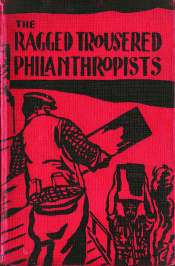Jess Brisley, English Lit and Theatre, 2nd year, UoR
 This summer, I spent six weeks undertaking a research project based in the archives of Special Collections at the Museum of English Rural life as part of the UROP scheme with my supervisors, Dr Nicola Wilson and Danni Corfield. My project, ‘Publishing Class’, was part of a longer-term project headed by Nicola Wilson which aims to re-examine the relationship between publishers and the working class over the 20th Century, and it used the extensive archives of the publishing house Chatto and Windus as a focal point.Arch
This summer, I spent six weeks undertaking a research project based in the archives of Special Collections at the Museum of English Rural life as part of the UROP scheme with my supervisors, Dr Nicola Wilson and Danni Corfield. My project, ‘Publishing Class’, was part of a longer-term project headed by Nicola Wilson which aims to re-examine the relationship between publishers and the working class over the 20th Century, and it used the extensive archives of the publishing house Chatto and Windus as a focal point.Arch
Special Collections has a near-complete set of Manuscript Entry books for Chatto and Windus which contain details of submitted manuscripts, including titles, authors, dates, addresses and comments from publisher’s readers. I paid close attention to these comments in particular, finding evidence of manuscripts which appeared to have been rejected on the basis of a class prejudice. These instances I compiled into a database which over time grew to reveal certain recurring strains of bias against the working class, the presence of which I determined by examining the use of specific language and reasons – such as “overladen with dialect and detail” – by the readers.
I also consulted reader’s reports, letter books and correspondence files in order to widen the scope of materials from which to uncover bias. Not all of these turned out to be useful to me, but I was pleased that the project allowed me the freedom to consult whichever materials I felt could be beneficial and steer the research in the best direction. The manuscript entry books remained the most useful over the six-week project, but the other resources gave me additional insight into the business side of the publishing industry.
Alongside my research, I took part in some cataloguing of reader’s reports within the Chatto and Windus archives. There are an immense number of them and each one needs a reference number specific to its place within the collection, alongside a date, archive level, writer, summary and physical description. For example, every item within the Chatto and Windus archives is under the code ‘CW’. Reader’s reports are under the series ‘CW RR’ and each year is allocated a number: the first year of reader’s reports in the archives is 1913, making it the subseries ‘CW RR/1’. The first document of 1913 receives the reference ‘CW RR/1/1’, and so on and so forth. These references are very important to the archives, not only for records and organisational purposes, but also to ensure that students and other users of the archives can find useful documents for their research using the library website or the University of Reading Archive and Museum Database search engine (Adlib) and be able to request specific items for their research.
I found this UROP project fascinating and enjoyable, and it was amazing to be able to access such a vast wealth of beautiful and unique materials at Special Collections. I would highly recommend everybody to consider consulting Special Collections during their research, as I intend to do going into my third year. The UROP scheme enabled me to participate in an area of research that I’m very passionate about alongside leading academics, and I would not hesitate to push second-year students to apply. Furthermore, the larger project that my six weeks with the UROP scheme formed a part of is an important one which I am grateful and proud to have been a part of and that I intend to keep updated with in the future.
If you’d like to find out more about the results of the project, you’re in luck – I wrote an article about it! You can read it here: https://raymondwilliams.co.uk/2018/07/30/publishing-class-rediscovering-the-lives-of-the-working-class-in-literature/#more-1384
